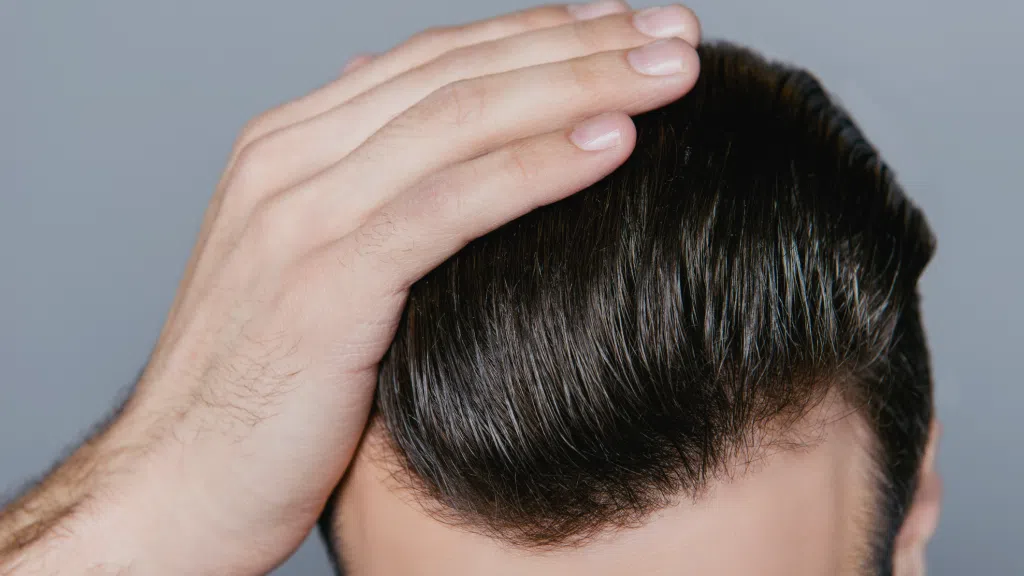Many men are self-conscious about their hair, and for a good reason. It’s one of the most visible parts of our appearance. Baldness is often associated with age, and health issues – but what about genetics and male pattern baldness? Here are three common questions about genetics’ role in male pattern baldness.
3 Questions About Male Pattern Baldness and Genetics
Question 1: Is it true that hair loss comes from your mother’s side of the family?
There is a lot of debate surrounding male pattern baldness heritability. Some people claim that hair loss is passed down from your mother’s side of the family, while others maintain that the male pattern baldness gene does not exist.
So, what is the truth? Male pattern baldness is indeed heritable. However, it is not necessarily passed down from your mother’s side of the family. While the male pattern baldness gene does exist, it can be present on either your mother’s or father’s side of the family. Studies have shown that male baldness has a complex inheritance pattern and is not simply determined by one gene. So, there is still much we do not know about its inheritance patterns.
Question 2: What does it mean if my DNA test says i am likely to go bald?
If you’ve ever looked at a family member and wondered whether you might one day suffer from the same fate of hair loss, you’re not alone. According to scientific research, the bald gene is quite common, affecting approximately two-thirds of all men.
So, what does it mean if your DNA test says you are likely to go bald? If your DNA test shows that you have the bald gene, you’re more likely to develop alopecia, the medical term for hair loss. If your father or grandfather is bald, there’s a good chance you may inherit the same fate.
The bald gene is a much-debated topic among scientists and medical professionals. Some believe that it exists, while others are not so sure. So, where does the bald gene come from? Some researchers believe that the baldness gene is passed down from the mother’s side of the family. In one study, scientists looked at families where the mother was bald and found that the sons were more likely to be bald. However, other studies have not been able to replicate these results.
Question 3: Besides genetics, what else affects balding?
While genetics is the most common cause of balding, other factors can contribute to hair loss. For example, certain medical conditions, such as thyroid disease and anemia, can lead to hair loss. In addition, certain medications, such as those used to treat cancer and arthritis, can also cause hair loss.
Stress is another common trigger for hair loss, as it can cause the body to produce hormones that lead to the death of hair follicles. Aging can also contribute to thinning hair and baldness. There is also some evidence that baldness may be linked to hormones. Testosterone, for example, has been shown to contribute to hair loss. That may explain why men are more likely to go bald than women. However, more research is needed to confirm this link.
Conclusion: Male Pattern Baldness and Genetics
Genetics has a large effect on male pattern baldness, but there are other factors that contribute to this, including diet, stress, hormonal changes, and other causes. While there is no cure for baldness, treatments can help slow down the process or even promote new hair growth. Changing your hairstyle or switching to a gentler shampoo can make a difference. If you are concerned about losing your hair, talk to your doctor about your options.
If you are concerned about male pattern baldness and genetics, consider scheduling a consultation with a hair loss specialist at Natural Transplants Hair Restoration Clinic. We have clinics in South Florida and Washington DC and offer travel incentives for our patients.


